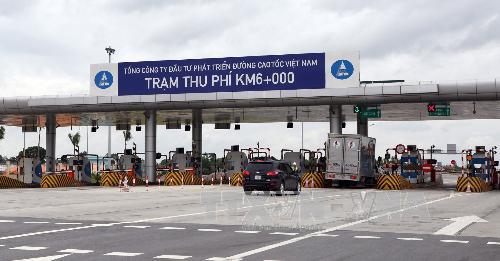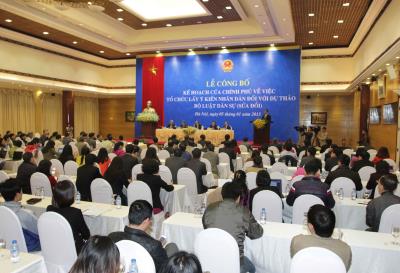The Ministry of Finance has recently posted on its website www.mof.gov.vn two draft decrees on the collection of land rental, water surface rental and land use levy, in a bid to prepare for the enforcement of the 2013 Land Law from July this year.
Notably, the ministry proposes increasing land rental rates, which currently range from 0.25 to two percent of the land price, to between 0.5 and three percent.
The lowest rental rate of 0.5 percent of the land price would apply only to land in deep-lying, remote and socio-economic difficulty-hit areas and agricultural, forest, aquaculture and salt-making land. The land rental rate applicable to land in urban centers, trade or service centers, traffic hubs or populous areas, which may yield special profits or be used as ground for production, business or service activities, would be decided by provincial-level People’s Committees but must not exceed three percent. For land of other categories, the rental rate would start at one percent.
Pham Dinh Cuong, former director of the Ministry of Finance’s Department of Public Assets, said that many enterprises are leased land by the State at the low rental rates, while others have to rent land from organizations or individuals at the market prices. Therefore, the rental rates applicable to land leased by the State should increase so as to ensure equality in enterprises’ access to land resources.
However, these proposals are raising fears among the business community as most enterprises agreed that the increased rental rates would burden them a heavier cost, especially during the current economic slowdown. Additionally, not only businesses but also local management agencies seem worried about the ministry’s plan. Representatives from the southern provinces of Long An and Khanh Hoa said increasing land rental rates could raise land prices. Meanwhile, Deputy Chairman of Hanoi People’s Committee Nguyen Van Suu said the municipal administration would further propose the Ministry of Finance and the Government to seek solutions for tackling the situation whereby land prices rise due to unreasonable policies.
The draft decree on collection of land use levy stipulates that land use levy must be paid by domestic economic organizations, overseas Vietnamese and foreign-invested enterprises that are allocated land by the State to implement housing projects. Under the 2003 Land Law, overseas Vietnamese and foreign-invested enterprises are not eligible for land allocated by the State but have to lease land with payment of land rental for the entire lease period.
A matter of great public concern is bases for calculation of land use levy in case the State allocates land not through auction of land use rights, permits the change of land use purposes or grants land use rights certificates.
Land prices used for calculation of land use levy payable by organizations would be the prices set by provincial-level People’s Committees. For households and individuals that are allocated residential land by the State, land use levy would be calculated based on the land prices provided in the land price table multiplied by the land price adjustment coefficient provided by provincial administrations.
The Ministry of Finance also proposes a specific schedule for land use levy payment. Accordingly, land users would be required to pay half of the payable land use levy amount within 30 days after receiving a notice of land use levy payment from tax authorities and pay the remaining amount within the subsequent 60 days. Any insufficiently paid amounts would be subject to late-payment interests from the 91th day on.-

